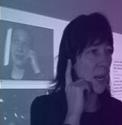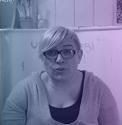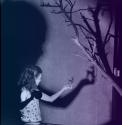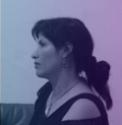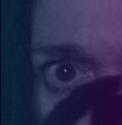
Beauty as a Weapon
Documentation:
The festival is dedicated to Margaret Cameron.
PROGRAMME
| 1-3 June | Odin Teatret's Women |
| 4-6 June | Workshops, Work Demonstrations and Performances |
| 7 June | Symposium and Performances |
| 8-12 June |
Festival |
Letter from Julia Varley
During the talks and performances at the last Transit Festival in 2013, with the theme "Risk, Crisis and Invention", I was struck by the recurring references to violence, both violence against women and the violence which it provokes in some women as a response. This is also evident also within our specific environment of theatre practice.
Every day we witness what seems like a worldwide war against women. In searching for effective ways to react, my only weapon is to do my work well: to give space to beauty, experience, contiguity, dialectic and poetry in a society apparently tainted by other values. Conflict as drama contributes to the engagement and motivation of theatre performances. The field of action implies a different use of words. In our craft the alternative to violence is not necessarily harmony and pacifism, but a fighting spirit that protects the values of life, diversity and exchange. When dealing with themes that evoke pain and exploitation I pursue a truth of simple stage presence and attempt to avoid exaggerated acting. I need to present beauty and wonder even amid the horror.
I have always been interested in the challenge of reclaiming words to build our theatre history as women. In 2013 I chose to use 'crisis' not in a negative sense, but as turning point for change; similarly for Transit 8, I have chosen 'beauty' combined with 'weapon' as an opposite to violence. I intend to question how conflict can result in a change of tension, a struggle to learn, an affirmation of generosity: necessary tools for our growth, with no desire to overpower others.
When the word 'beauty' is used in connection with women, it evokes preconceptions such as images of fashion models, and 'beauty as a weapon' makes us think of the way appearance can be used to seduce or persuade. But nature and art, with their asymmetry, revelation and questioning, are beautiful. The wrinkled face of an old woman from the dry regions of Brazil is beautiful. Something delicate, small and apparently insignificant can be beautiful. It is a political choice: to reject the hierarchical authority that imposes power from the top with expedients we will never have, we can only rely on the personal, on what each of us knows from experience, from a position that finds its centre at the margins.
While directing Anonymous, a performance dedicated to Susana Chávez, the Mexican poet killed after inventing the slogan "not one more dead woman" in relation to the feminicides on the border between Mexico and the USA, I knew I could not present this horror directly on stage. I could not confront the theme of brutality in a realistic way, because theatre does not have the same impact as the ruthlessness of history. Instead I needed the performance to move a few individual spectators through images, through the vulnerability of the women on stage and the softness of a classic guitar.
Can beauty help make the world a place worth living in? And what does beauty mean today for us women theatre practitioners? With the loss of ritual and the weakening of the depth of education, things like nationalism and football bring people together. Can theatre be an alternative space that does not avoid conflict but communicates through it? As women, we have changed the balance off patriarchal domination. But it is not yet evident how we can establish a new balance in which everyone can find her or his own autonomy and role. Perhaps theatre - where opposition and conflict are a source of creativity and indispensable to drama; where the physical body, images and senses are essential to the complexity of perception and interpretation - is a ground on which we can invent and experiment in search of a different outcome.
Many women (and two men) have been invited to Transit 8 Festival to contribute their points of view on its theme through performances, work demonstrations, workshops and talks. We know Transit will not give any definite answers to our questions, but I am sure we will all experience some moments of beauty that will furnish us with weapons of perseverance and poetry to continue our struggle in defence of women's rights and expression. As in Dorthe Kærgaard's image for Transit 8, we will brandish a rainbow in our hands while galloping on a wild horse.
Julia Varley
Holstebro
Invited artists:
- Amaranta Osorio/Teresa García (France-Mexico/Spain), ANONIMAS
- Ana Woolf (Argentina), WHITE AS THE NIGHT, BEHIND THE CURTAIN, SEEDS OF MEMORY and workshop
- Anne Middleboe (Denmark), talk
- Black Box, Marie Brolin (Denmark), work demonstration
- Camilla Sandri, Roberta Lanave (Italy), poetry menu and work in progress VOI SIETE QUI
- Carolina Pizarro (Chile/Denmark), LAND OF FIRE, FROM AMAGAKI TO SHIBUGAKI - GEOGRAPHY OF AN APPRENTICESHIP, and workshop
- Cia YinsPiração Poéticas Contemporâneas, Luciana Martuchelli (Brazil), THE TIGHTROPE WALKER with Filipe Lima
- Contralviento Teatro, Veronica Falconi (Ecuador), WHEN IT RAINS ON THE PARAMO
- Dah Teatar, THE VILLAGE with Tina Milivojević, THE SHIVERING OF THE ROSE with Nemanja Ajdaćić, Dijana Milošević, Maja Mitić
- Dorthe Kærgaard (Denmark), painting exhibition
- Elizabeth de Roza (Singapore), work demonstration
- Gilla Cremer (Germany), MY PARENTS' THINGS
- Gilly Adams (UK), workshop
- Grenland Friteater, Geddy Aniksdal, Tor Arne Ursin (Norway), SEVEN SONGS OF THE REFUGEE
- Helen Varley Jamieson (New Zealand/Germany), CREATING CONNECTED CONVERSATIONS a cyberformance presentation, and an installation
- Jana Korb (Czech Republic/Germany), FRAU VLADUSCH
- Jill Greenhalgh (UK) DAUGHTER, THE BOOK OF SILENCE with Suzon Fuks
- Katrine Faber (Denmark), ONE STEP - (FOR HUMANITY)
- Keiin Yoshimura (Japan), SAKURA and workshop
- Madeline McNamara (New Zealand), workshop
- Maskhunt, Deborah Hunt, Guie Beeo (New Zealand/Puerto Rico), BABA YAGO BANDAZO and workshop
- Nora Amin (Egypt), film AN ENEMY OF THE PEOPLE - THE JOURNEY TO SURVIVAL
- Opera reablO, Ledwina Costantini (Switzerland), CARNAGE
- Paola Vellucci (Italy-Brazil), GOTAS D'AGUA
- Parvathy Baul (India), THE TREE and painting exhibition
- Qin Xin; The National Theatre (China), talk
- Sara Topsø, Carte Blanche, Gitta Malling, Limfjordsteatret, Dorthe Bebe, Team Teatret, (Denmark), talk
- Susana Nicolalde (Ecuador), CAMILA
- Teatro delle Radici, Cristina Castrillo (Switzerland), IF SILENCE KNEW
- Teatro do Encontro, Roberto Ribeiro, Tina Andrighetti (Argentina), TANGO
- Teatro La Candelaria, Patricia Ariza, Nohra González, Alexandra Escobar, Carlos Satizábal (Colombia), MEMORIA, THE MAN WHO DREAMT OF GIVING BIRTH TO A GIRL THROUGH THE NAVEL and workshop
- Teatro Lila, Gabriella Sacco (Italy/The Netherlands), SECRET MIMESIS with photo installation by Tatjana Todorović
- Teresa Ruggeri (Italy), ROVINE DEL TEMPO
- Théâtre du Mouvement, Claire Heggen (France), OMBRE CLAIRE and workshop
- Violeta Luna (Mexico/USA) VIRGINS AND GODDESSES - STONES OF MEMORY
- Voix Polyphoniques, Brigitte Cirla, Nadine Esteve, Magali Rubio, Eléonore Bovon, Catherine Duport (France) IMPAIRES, TOUT MOREAU
- Ya-Ling Peng (Taiwan) workshop


